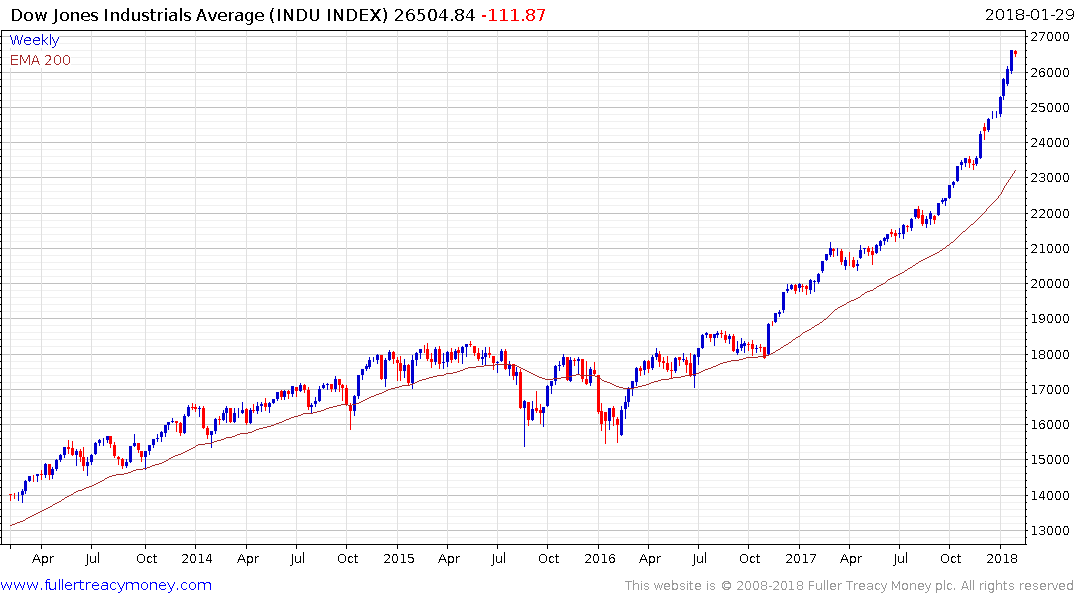Bridgewater billionaire Ray Dalio: "I have an affinity for mistakes"
Thanks to a subscriber for this article by Gillian Tett for the Financial Times which may be of interest. Here is a section:
What’s more, Dalio does not actually think that his relatively upbeat vision of “the economy” is what investors should focus on now. Before the last credit crisis, when Dalio was making his prescient calls, he used models of financial flows, debt and growth to predict where markets were heading. Indeed, he was so proud of these models that he later produced a chirpy cartoon with stick figures that likened the economy and financial system to a machine.
But Dalio recently decided it is meaningless to talk about “the economy”, or trade on this overall “machine”. This stems from an issue that billionaires usually prefer to avoid talking about: rising income inequality. More specifically, Dalio thinks inequality is rising so fast that it has created multiple “economies”: although the elite live in an expanding economy, “for the bottom 60 per cent, 80 per cent, there is a depressed economy that is not growing well”. This means we need to think how we talk about “economics”, he says. America needs a “national commission to rethink our economic metrics”.
But this vision has also changed how he models the future: he thinks this inequality is creating so much strife that it will be political conflict — not economics — that drives markets in 2018 and beyond. “[These days] there’s not the same volatility of inflation, growth and interest rates. So political issues are more important than macro [economic] issues,” Dalio says. “The world was driven by central bank policies [before]. That’s not the case now,” he adds, noting that what investors should watch is not (just) Fed statements, but “the next election in France or in the UK, or how hospitable will Jeremy Corbyn be to capital?”
Here is a link to the full article.
Nothing lasts forever. We have been though decades of governments in the West that ruled from the Middle. Each of us has strong political views, but I don’t think anyone would argue with the fact that over the last few decades the majority of governments have persisted with the policies of the last regime with small changes that are more cosmetic than real and where the greatest differences are in the personalities of politicians. If anything, the one abiding policy has been to increase social benefits and public sector pay in an effort to ensure power is sustained. This has resulted in rising debt burdens, unfunded pension liabilities and health services that are rapidly running out of money.
The credit crisis was a pivotal event because it signaled a decision for elite on whether to intensify their policies or abandon them for a more equitable solution. Bailing out the banks by massively increasing the debt servicing obligations of the sovereign meant that those who had taken risk were bailed out by those who had not. That failure of massive money creation to stimulate growth and high standards of living added insult to injury for millions of so-called middle-class people. We don’t have to look much further for the reason behind the rise in populism, xenophobia and nationalism. They are all symptoms of a wider revolt against the status quo.

The move to fiscal stimulus (AKA deficit spending) by the USA is a reflection of this transition. The first rule of politics is give the people what they want and what they want is more money. That is helping to fuel the accelerating trends on Wall Street and is a clear example of the increasing influence of politics on markets. Since the switch to populism has so far not resulted in the calamity predicted, and fiscal stimulus will, at least for a while, support higher spending, we can expect political polarization to remain a powerful force for change in economies and markets both in the USA and elsewhere.


